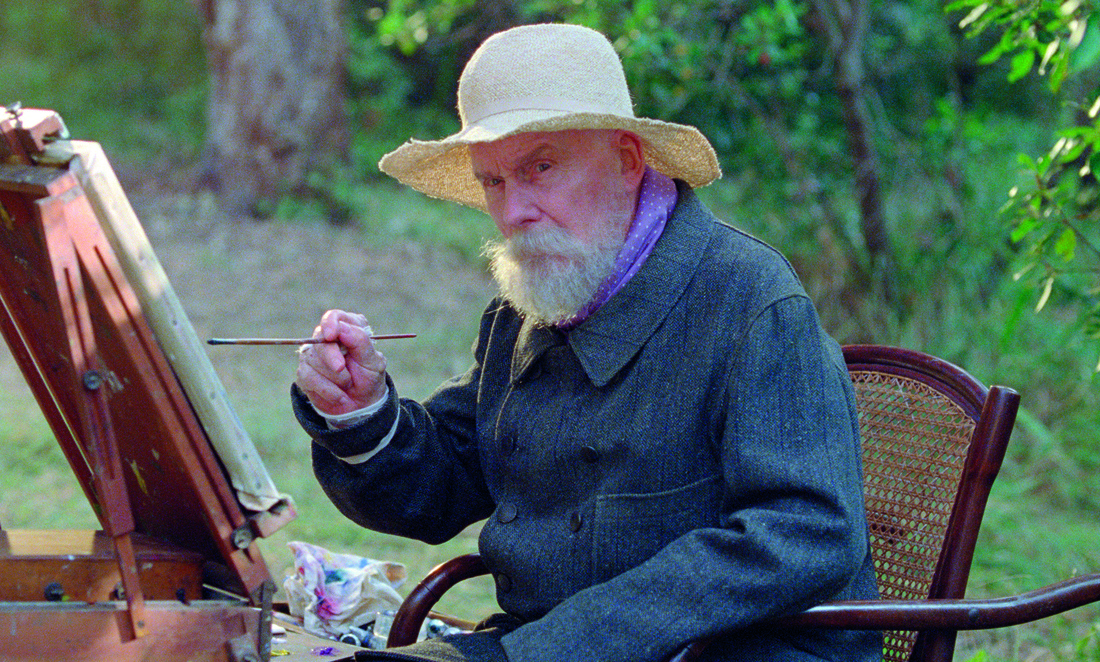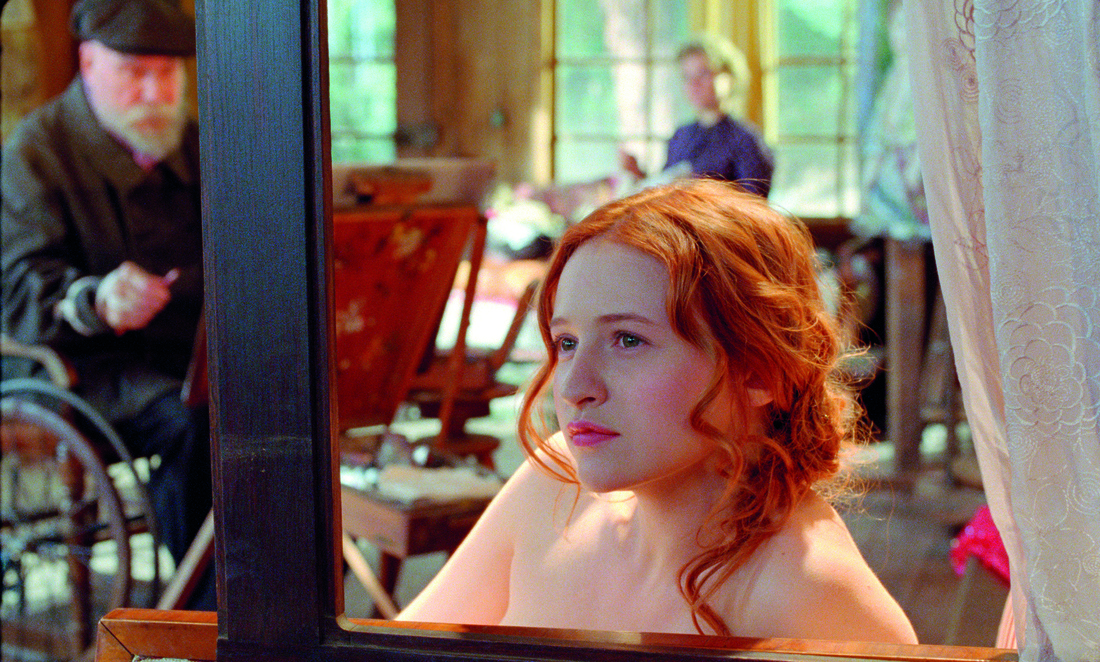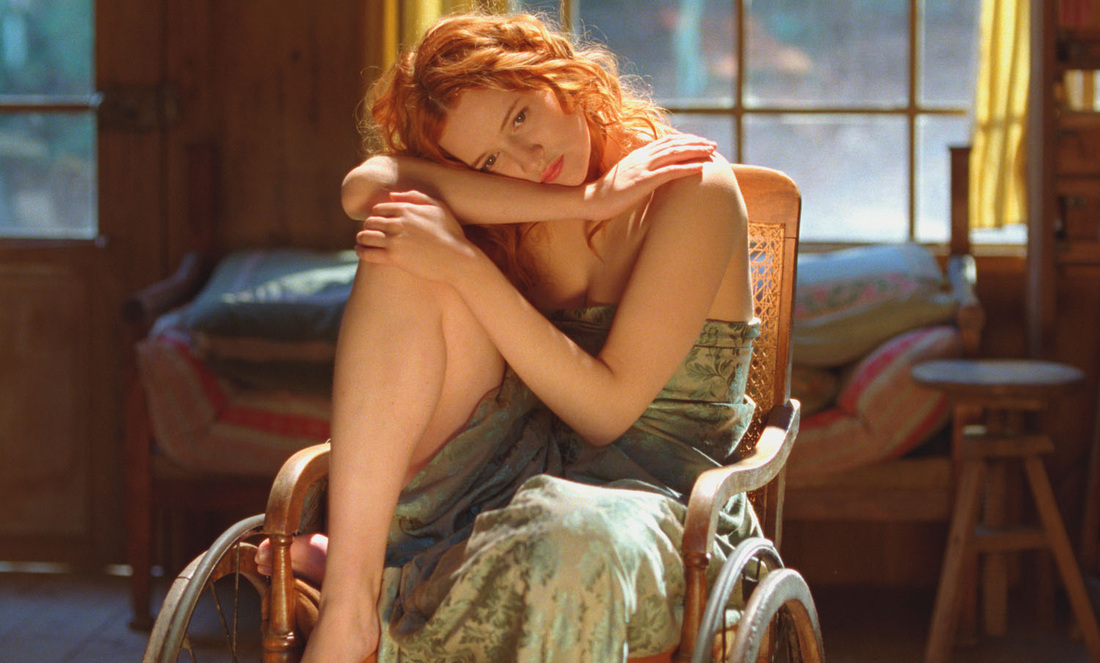|
How entertaining? ★★★☆☆
Thought provoking? ★★☆☆☆ 29 May 2013
This a movie review of RENOIR. |
“A painting should be something pleasant and cheerful,” Pierre-Auguste Renoir
The French Riviera, 1915, a beautiful flame-haired woman rides a bicycle in the countryside, shot through in warm dappled light. An effigy of a German soldier hanging above the road breaks the image of a kind of paradise. The film sets out its stall immediately; we could have been looking at a painter at any point in his career, the choice of creating art amid a world war raises an enquiry of relevance. In times of global conflict and austerity, does it have a place? Well that is the question initially asked, but is barely explored. And that typifies RENOIR; a piece that poses, in more ways than one, but chooses luscious imagery and melodrama over analysis.
The French Riviera, 1915, a beautiful flame-haired woman rides a bicycle in the countryside, shot through in warm dappled light. An effigy of a German soldier hanging above the road breaks the image of a kind of paradise. The film sets out its stall immediately; we could have been looking at a painter at any point in his career, the choice of creating art amid a world war raises an enquiry of relevance. In times of global conflict and austerity, does it have a place? Well that is the question initially asked, but is barely explored. And that typifies RENOIR; a piece that poses, in more ways than one, but chooses luscious imagery and melodrama over analysis.
|
|
|
And what visuals! Cinematographer Ping Bin Lee (NORWEGIAN WOOD; IN THE MOOD FOR LOVE) feasts your eyeballs, aggrandizing what might have been a television movie without his skills. There are of course beautiful women and tastefully, sparsely revealed. We’re in a certain kind of fantasy territory here - but not a gratuitous one - if you’re the wealthy elite you have the luxury to indulge matters of the heart and wrestle with your life’s purpose, everyone else is just a spectator/facilitator.
“The only time he talks to me, is to scold me,” Coco
At the end of celebrated painter Pierre-Auguste Renoir’s life, confined to a wheelchair and requiring massage to his hands to allow him to hold a brush, he wants his three sons to find their way. There is no real talk of what made Renoir so renowned, nor the impact of his oeuvre. RENOIR is more concerned with feisty muse and model Andrée Heuschling (Christa Theret). The lady on that bicycle. Coming out of nowhere to shake up the household. A frisson grows between her and Renoir’s middle offspring, Jean, returning from the front injured.
“You have to know who you are,” Andrée
She is an artist herself Andrée claims, as well as an actress, dancer, singer. Confident and combustible, Andrée wants to be taken seriously; but there are little opportunities presented for a poor woman to cultivate an expressive temperament. When Renoir has gotten bored of his models, it is chattered in the kitchen, they became servants.
“Flesh. That’s all that matters,” Renoir
A melancholy-tinged look at how women can be discarded, including a fascinating postscript, yet sheds little light on creativity or the human condition. Contrast Peter Greenaway’s overlooked, brilliant NIGHTWATCHING.







